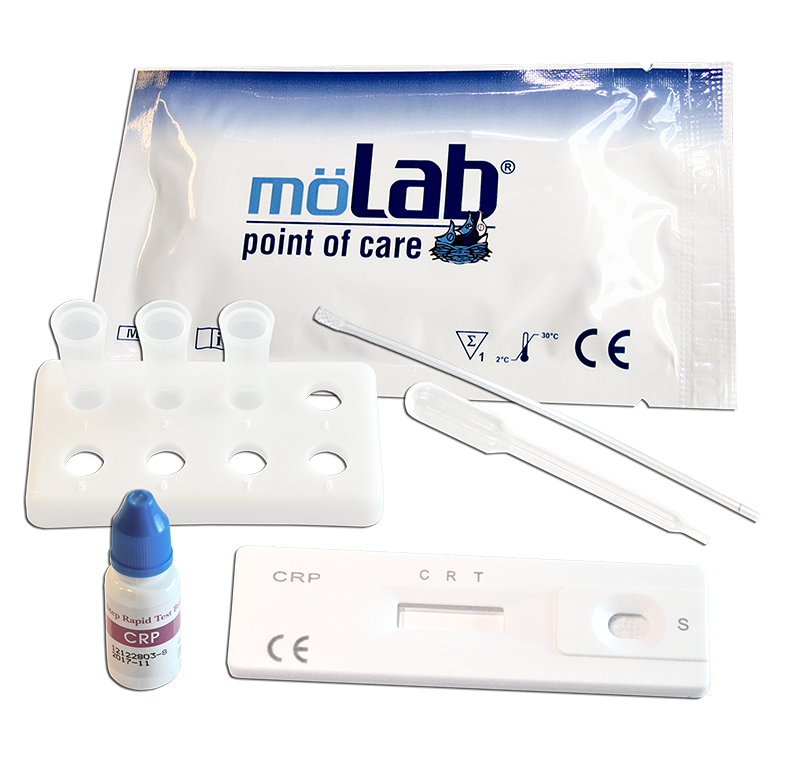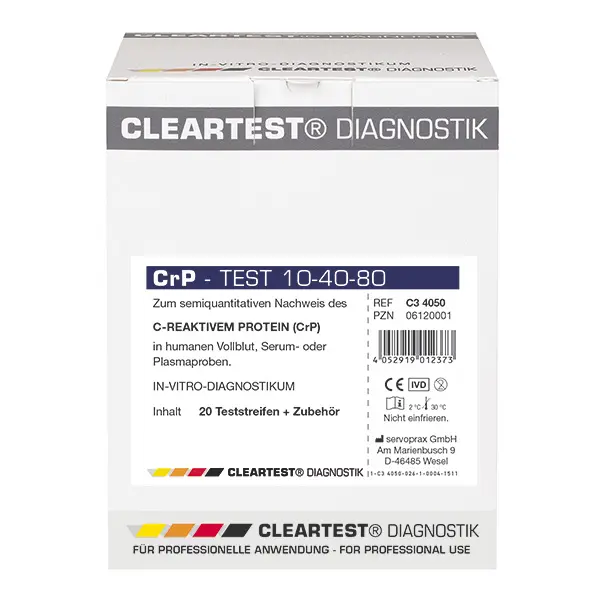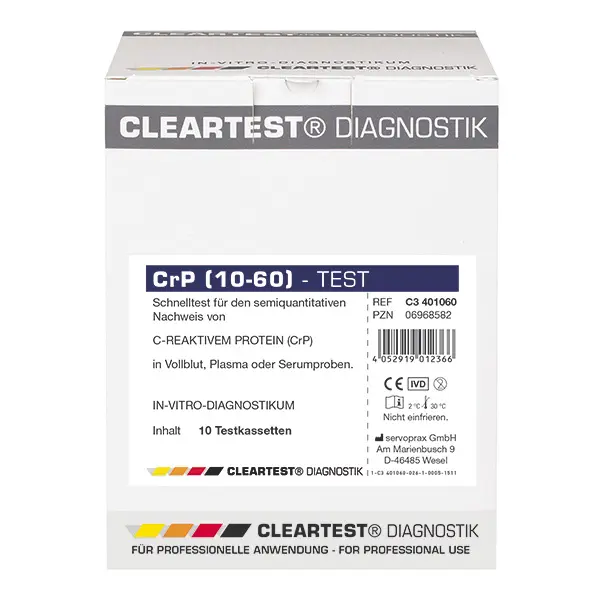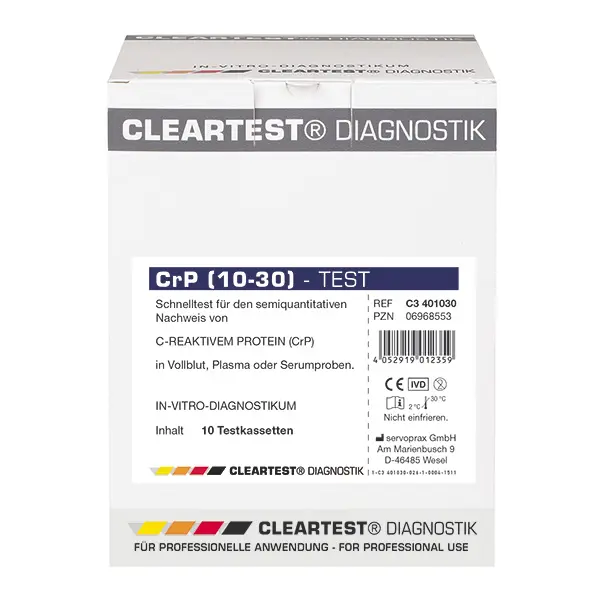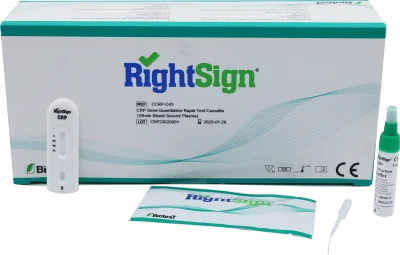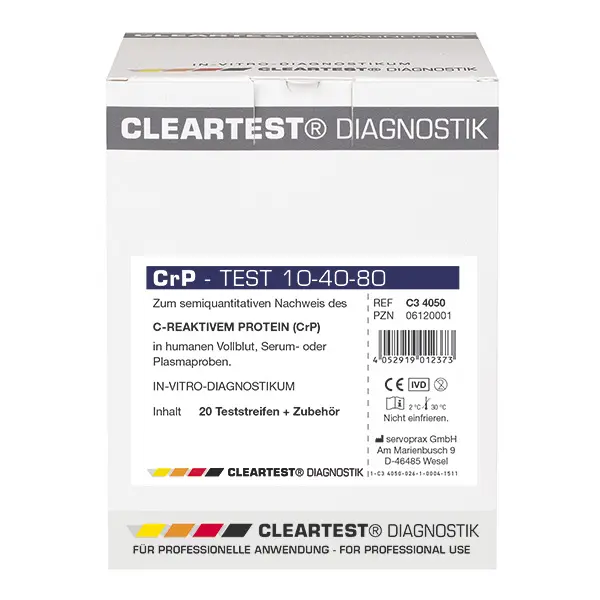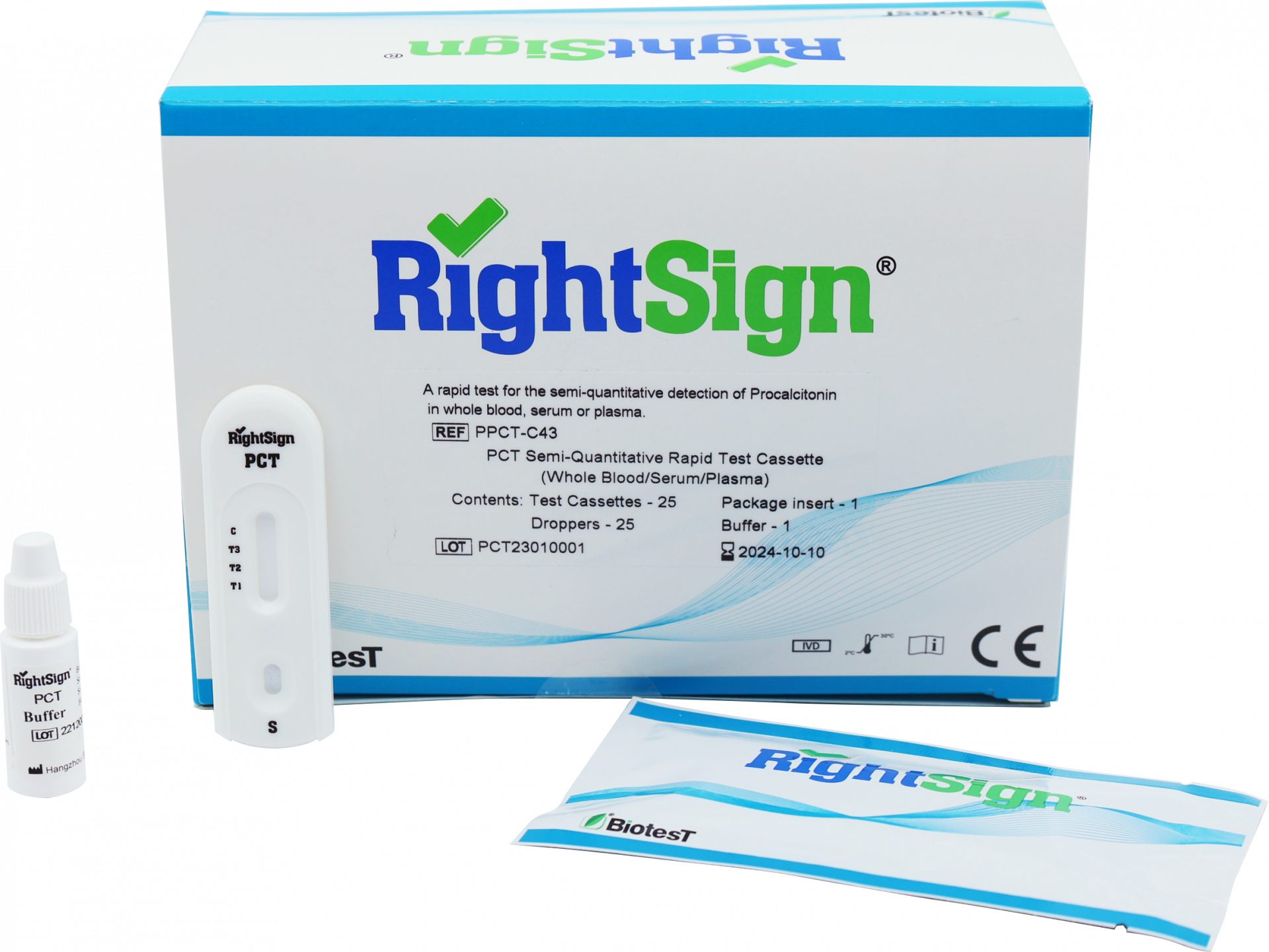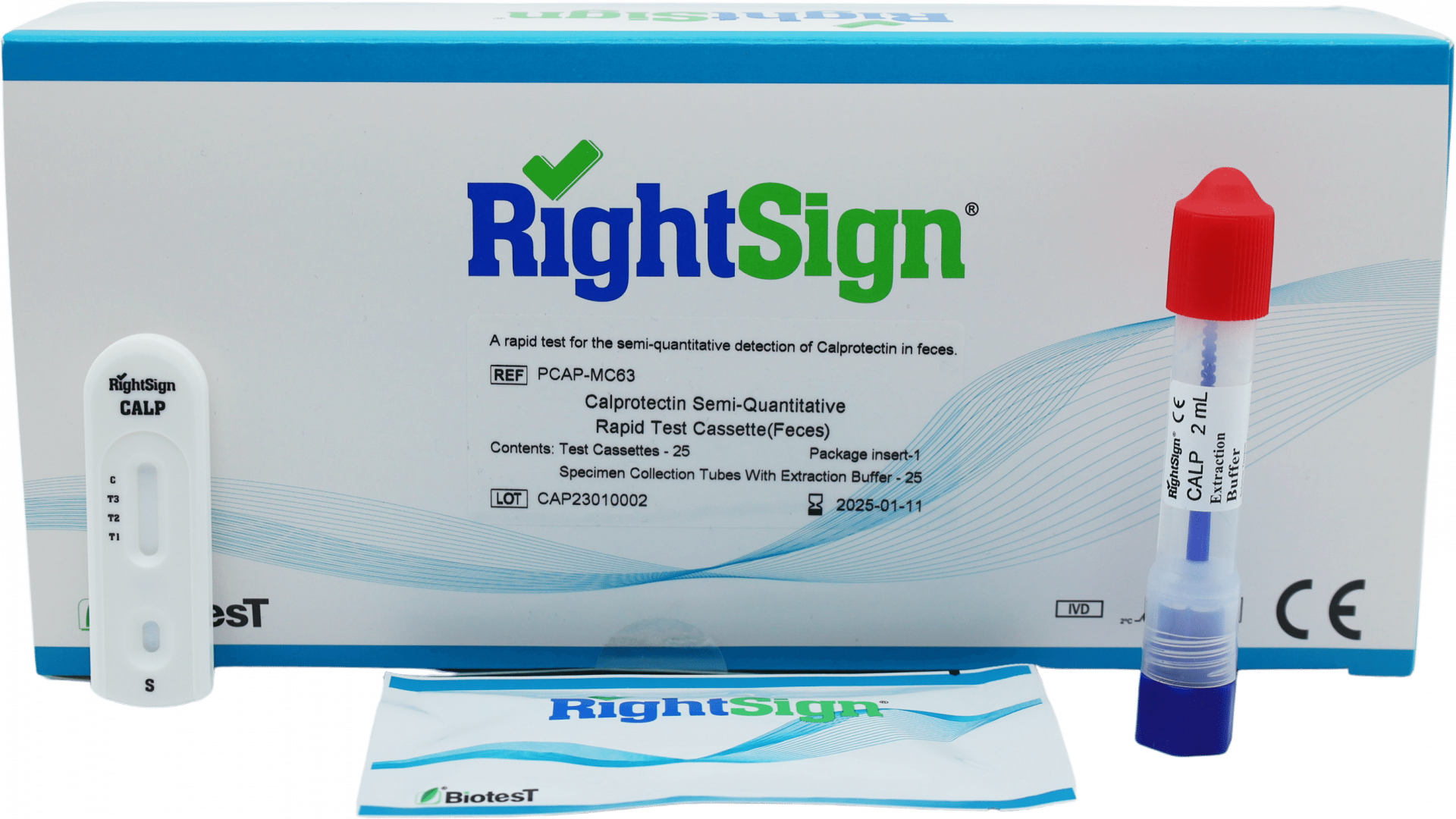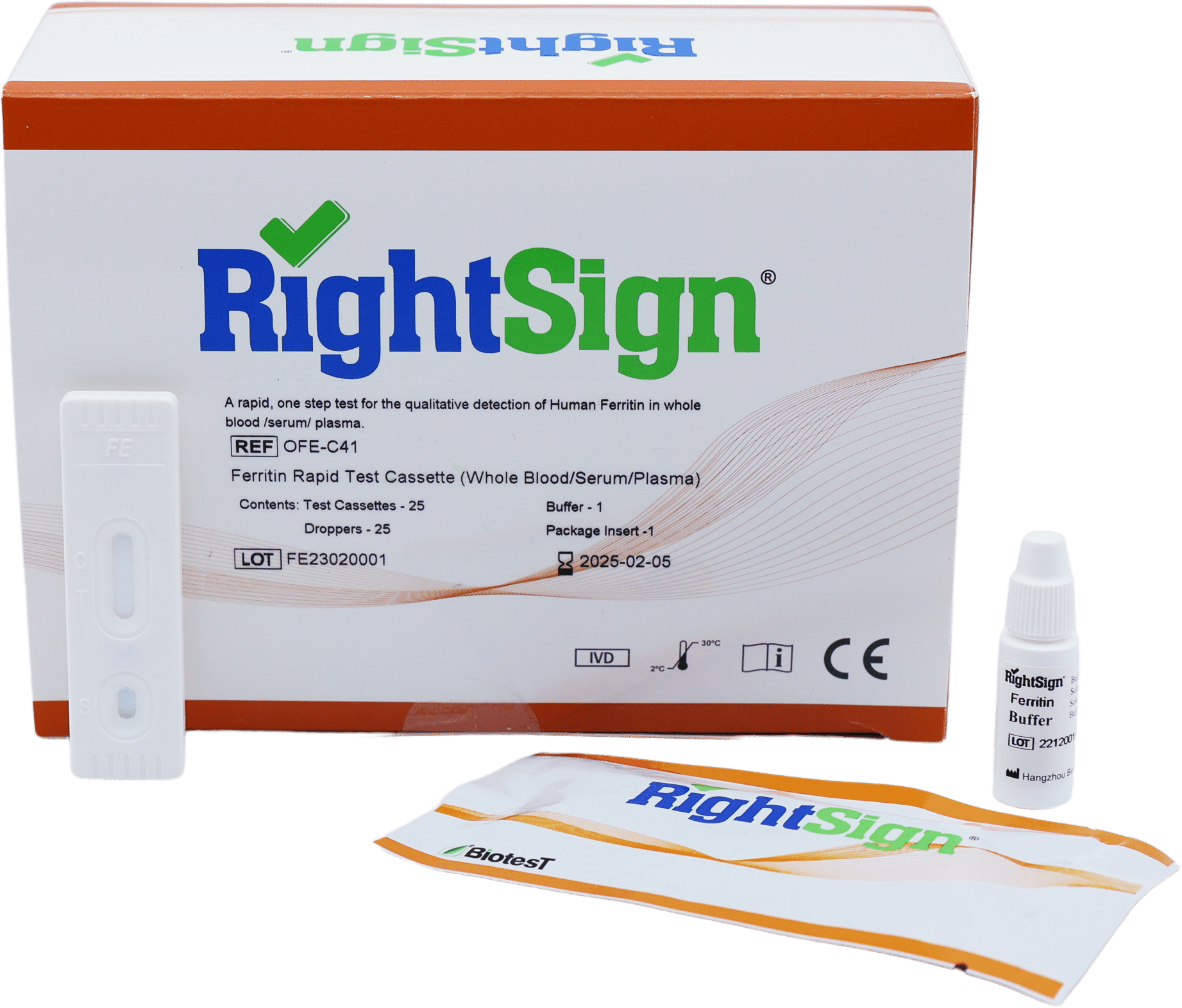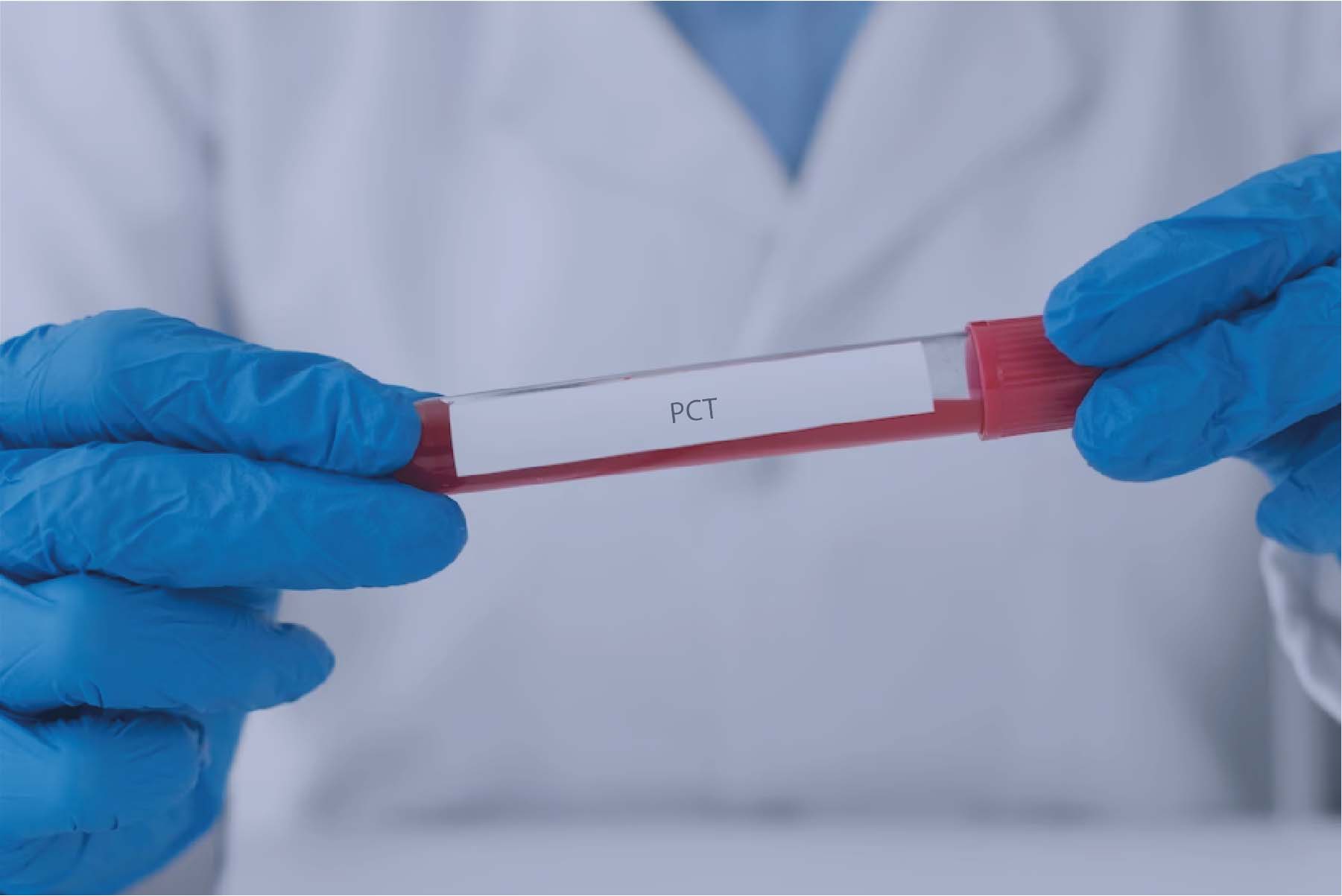CRP Test
CRP Tests are essential tools in detecting inflammation and assessing heart disease risk. Our commitment is to deliver doctors, healthcare providers, clinics, and hospitals the best-of-class C-reactive Protein (CRP) Blood Test. These tests allow for precise measurement of C-reactive protein, a key biomarker of inflammation and indicator of cardiovascular risk. Fast and easy to use, these tests support informed decision-making and effective treatment strategies, offering invaluable insights into patient health.
Recommended Solutions for Detecting Inflammation and Evaluating Cardiovascular Risk
We are pleased to continue providing you with PCT, Calprotectin, and Ferritin Tests so you can maintain a comprehensive approach to the early detection and management of inflammation and cardiovascular health.
FAQ for CRP Test - C-reactive Protein Blood Test
The available CRP Test helps in detecting inflammation and assessing cardiovascular risk. Typically, samples are taken from venous whole blood or capillary samples. The primary methods are laboratory-based analysis and point-of-care testing. Find more details here on its high sensitivity, distinguishing acute from chronic inflammation, and its utility in managing conditions like inflammatory bowel diseases. Also, understand why to read the FAQ, such as interpreting test results and understanding the complex mechanisms affecting CRP concentration.

- What are the different types of CRP Blood tests, and how do they vary?
- How do I evaluate a CRP test’s quality?
- How do C-reactive Blood Tests detect inflammation in the body?
- Who should consider undergoing a C-reactive Protein Test?
- What is the accuracy of these tests in terms of sensitivity and specificity?
- What does an elevated CRP test result mean?
- Why is the CRP blood test crucial for identifying inflammation?
- Do you offer other inflammation tests and a ranking of the best available options?
- Where can I find a comprehensive Comparison of CRP Tests?
What are the different types of CRP blood tests, and how do they vary?
There are primarily two types of CRP tests: the standard CRP test and the high-sensitivity CRP (hs-CRP) test. The standard CRP test measures the general level of CRP in the bloodstream to detect inflammation due to conditions like bacterial infection or rheumatoid arthritis. The hs-CRP test is more sensitive and is used to evaluate the risk of heart disease.
Standard CRP Tests
Standard CRP tests are designed to measure significant increases in CRP levels, typically used to detect acute inflammation in your body. This test measures the level of C-reactive protein in a blood sample, helping identify conditions like rheumatoid arthritis or bacterial infections that cause inflammation.
High-Sensitivity CRP (hs-CRP) Tests
High-sensitivity CRP tests can detect even slight elevations in c-reactive protein levels, making them useful for assessing chronic low-level inflammation. This test measures the level of c-reactive protein with greater precision, often used to evaluate risk of heart disease by identifying subtle inflammation in your body.
How do I evaluate a CRP test’s quality?
To evaluate a C-reactive protein blood test’s quality, ensure the test accurately measures the CRP level from a blood sample and consider consulting independent expert studies for validation. Results reveal high CRP and levels of crp indicating inflammation in your body, rheumatoid arthritis, bacterial infection, and risk of heart disease via bloodstream.
How do C-reactive Blood Tests detect inflammation in the body?
C-reactive blood tests detect inflammation by measuring the CRP level in the bloodstream. This test measures the CRP level, which elevates during conditions like rheumatoid arthritis and bacterial infection that cause inflammation in your body, increasing the risk of heart disease.
Who should consider undergoing a C-reactive Protein Test?
Individuals experiencing signs of high crp or abnormal crp level should consider a C-reactive Protein test. Those with rheumatoid arthritis, bacterial infection, or other conditions that cause inflammation is in your body, including increased risk of heart disease, may benefit significantly.
.webp)
What is the accuracy of these tests in terms of sensitivity and specificity?
CRP tests demonstrate high sensitivity and respectable specificity by measuring the CRP level from a blood sample. The test measures the level, detecting high CRP in conditions like rheumatoid arthritis or bacterial infection, and accurately reflects inflammation in your body.
What does an elevated CRP test result mean?
An elevated CRP result signifies an increased CRP level, indicating significant inflammation in your body. This test may reflect rheumatoid arthritis, bacterial infection, or other conditions that cause inflammation, with c reactive protein rising in the bloodstream, causing the inflammation clearly.
Why is the CRP blood test crucial for identifying inflammation?
The CR-protein blood test is crucial as it measures the level of C-reactive Protein from a blood sample, detecting high CRP that indicates inflammation. It identifies conditions such as rheumatoid arthritis and bacterial infection, which cause inflammation and heart disease risk.
Do you offer other inflammation tests and a ranking of the best available options?
Yes, we do offer more rapid inflammation tests:
PCT
Best Product: RightSign PCT
Semi-Quantitative Rapid Test Cassette
Source: Best PCT Tests
Where can I find a comprehensive Comparison of CRP Tests?
Here, you can find an extensive comparison of CRP Tests. These tests measure the CRP level from a blood sample, detecting C-reactive protein increase in rheumatoid arthritis, bacterial infection, or conditions causing inflammation.

